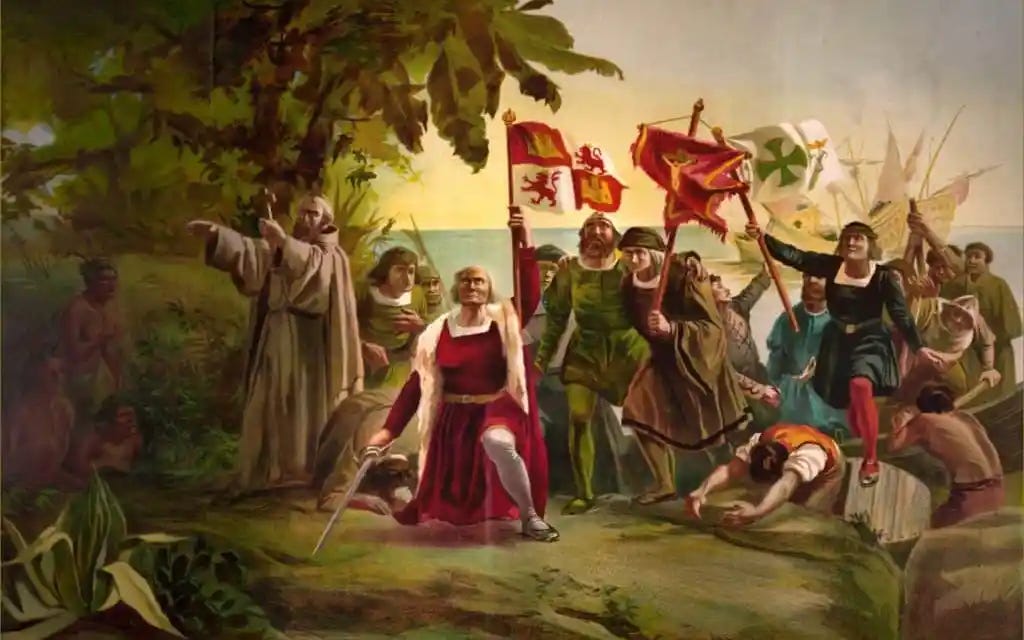Christopher Columbus and the Birth of the Modern World
Far from the monster of Marxist myth, Columbus was a Christian visionary whose courage, faith, and genius ended the Middle Ages and made the modern world possible.
This analysis is free, but with Premium Membership you get MORE. Join today.
by Rod D. Martin
October 12, 2025
Today we celebrate Columbus Day. This day is a commemoration of discovery, of the audacity to push past the map’s edge for the sake of truth, and the chain of events that led to the creation of America, the apotheosis of Western Civilization.
Which is precisely why the Left hates him, demonizing Columbus as a means of delegitimizing us.
But the truth is the polar opposite of the Marxist myth. Christopher Columbus stands among the most consequential men who ever lived: an adventurer, entrepreneur, navigator, and visionary whose courage cracked the medieval world wide open and let the light in. He bet everything — reputation, livelihood, even his own life — on a daring idea that changed the entire trajectory of human history.
Was he perfect? Of course not. Was he a mo…




